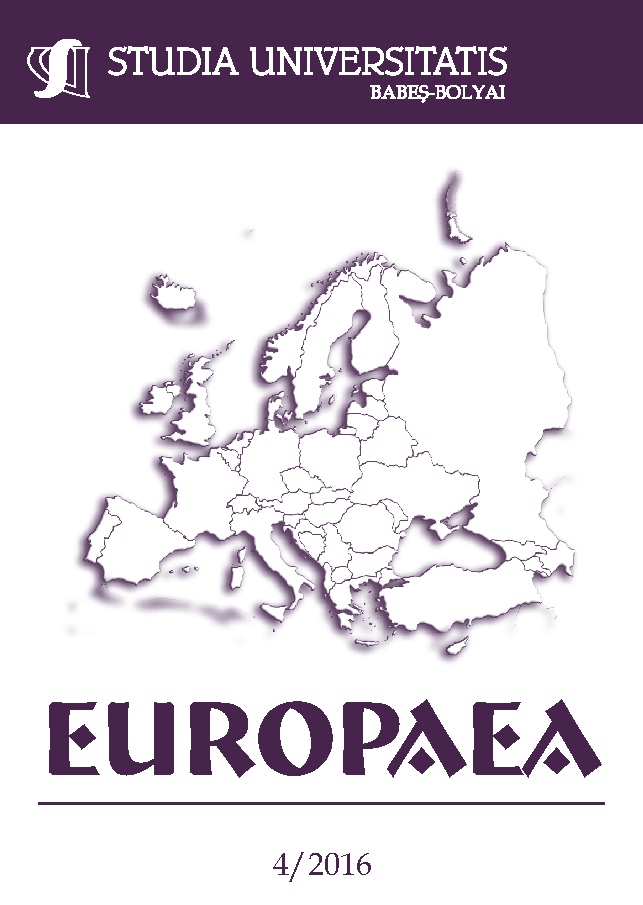QUIET DIPLOMACY: SOUTH AFRICA’S WAY OF DEALING WITH ZIMBABWE DURING THE PRESIDENCY OF THABO MBEKI
Keywords:
quiet diplomacy, foreign policy, soft power, Southern AfricaAbstract
This article focuses on the various forms of interactions taking place between the governments of South Africa and Zimbabwe since 1999. It aims to unveil the particular actions that South Africa has taken to ensure that its neighbour stays on the path towards democratization, and tries to provide reasoning for any such action. Furthermore, unveils a particular strain of diplomacy deployed by authorities in Pretoria, one that values secrecy and in which contestation is avoided. South Africa is the regional hegemon, nonetheless, its interactions with Zimbabwe are non-intrusive to the point that they become difficult to quantify or qualify. The use of soft power and carrots, rather than sticks is due to a long-standing relationship between the two countries, both political and economic, rendering it difficult to force transition upon Zimbabwe, without risking a backlash, and without endangering both regional security and that of the citizens of Zimbabwe. With that in mind, the article concludes that the approach of Pretoria’s government towards Harare is not necessarily detrimental to South Africa’s long-term aspirations, even if it does not quench the thirst of critics calling for rapid democratization techniques.
References
Adelmann, M., (2004), ”Quiet diplomacy: The Reasons Behind Mbeki's Zimbabwe policy”, in Africa Spectrum, vol. 39, no. 2, 249-276.
Africa Institute, (2001), ”Report on the Africa Institute of SA Fact-Finding Mission to Zimbabwe”, Pretoria.
Barber, James and Vickers, B. (2001), “South Africa’s Foreign Policy”, in Venter, A. (ed.), Government and Politics in the new South Africa, Pretoria: J.L. van Schaik, 2001, 330-347.
Barber, James (2000), “South Africa’s political miracle: the international dimension”, South African Journal of International Affairs, vol 7(1), 51-71.
Bond, P. (2002), “Zimbabwe: Pretoria’s New African Dilemma”, in Indicator South Africa, vol. 19(1),15-23.
Collin, P. H (1997), Dictionary of Government and Politics, Middlesex: Peter Collin.
Daniel, J., Lutchman, J. and Comninos, A. (2007), “South Africa in Africa: Trends and Forecasts in a Changing African Political Economy”, in Buhlungu, Daniel, J., Southall, R. and Lutchman, J. (eds.), State of the Nation: South Africa, Capetown: HSRC Press, 508-532.
Deininger, Klaus, (1999), "Making Negotiated Land Reform Work: Initial Experience from Colombia, Brazil and South Africa." in World Development, vol. 27, 651-672.
Diop, C. A. (1996), Towards the African Renaissance: Essays in African Culture & Development, 1946-1960, London: Karnak House.
Evans, G. (1999), “South Africa’s Foreign Policy after Mandela: Mbeki and his Concept of an African Renaissance”, in The Round Table, no. 352, 621-628.
Landsberg, Cristopher (2004), The Quiet Diplomacy of Liberation. Johannesburg: Jacana Media Ltd, 2004.
Mandela, Nelson (1993), “South Africa’s Future Foreign Policy”, Foreign Affairs, Vol 72(5), [http://www.foreignaffairs.com/articles/49408/nelson-mandela/south-africas-future-foreign-policy], retrieved 12 May 2015.
Mandela, Nelson (1994), Address by the President of the Republic of South Africa, Mr Nelson Mandela to the United Nations General Assembly, New York.
Mbeki, Thabo (1998), Address to the Corporate Council Summit, Chantilly, Virginia, The African Renaissance, Occasional Papers, Konrad Adeneur Stiftung, Johannesburg.
Meredith, M. (2002), Robert Mugabe: Power, Plunder and Tyranny in Zimbabwe, Johannesburg: Jonathan Ball Publishers.
Otte, T. G (2001), “Kissinger” in Berridge, G. R., Keens-Soper, M. and Otte T. G. (eds.), Diplomatic Theory from Machiavelli to Kissinger, New York: Palgrave, 181-210.
Peters, P. L and Malan, N. (2000), “Caveats for Land Reform in South Africa: Lessons from Zimbabwe”, in South African Journal of International Affairs, vol 7(2), 151-161.
Russel, A, (2009), Bring Me My Machine Gun: The Battle for the Soul of South Africa, from Mandela to Zuma, New York: Public Affairs.
Sachikonye, L. (2011), Zimbabwe's Lost Decade: Politics, Development & Society, Harare: Weaver Press.
Sparks, A. (2008), Jobless Time-bomb, [http://www.news24.com/archives/witness/jobless-time-bomb-20150430], retrieved 21 May 2015.
Van Niekerk, D., Vand der Waldt, G. and Jonker, A. (eds.), (2002) Governance Politics and Policy in South Africa, Oxford: Oxford University Press.
Downloads
Published
How to Cite
Issue
Section
License
Copyright (c) 2016 Studia Universitatis Babeș-Bolyai Europaea

This work is licensed under a Creative Commons Attribution-NonCommercial-NoDerivatives 4.0 International License.



